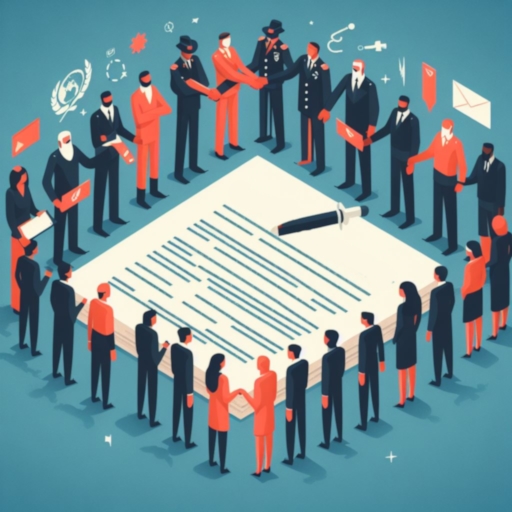
Social Contracting
In their book, How the Way We Talk Can Change the Way We Work, Robert Kegan and Lisa Lahey suggest that there are several linguistic and thinking patterns that, if implemented, create more productive and effective organisations. High-performing teams regularly communicate amongst themselves and with their stakeholders using these patterns of communication.
From 'rules and policies' to 'social contract'
Public agreement about your Social Contract does not provide a 'set of rules to be followed' so much as it provides a means of having an on-going conversation about what type of culture people want, what they want from each other, and about what happens when these agreements are (inevitably) transgressed.
Healthy, robust and strategic relationships are not created by people staying within set interpersonal boundaries. This is a recipe for conventional, staid, and unresponsive relationships, ways of thinking and ways of behaving. This leads to bad politics, groupthink and inevitably increases an organisation's risk profile.
Instead, effective strategic relationships are created and strengthened by leaders bouncing into and rolling over each other’s values and personal boundaries, having the robust adult discussion about what people wanted, what happened instead, what perceived agreement was transgressed and then mutually understanding exactly what the intention of the other person was in the first place. This is active meaning-making. This creates organisational value.
As well, once begun as a practice, public agreement/ social contract conversations become the on-going mechanism whereby the leadership of the organisation creates its culture. This is not a one-off activity. The result of this should not be a flipchart or laminated list of dot points. The products of this process are the strategic relationships created and maintained through conversations and dialogue.
While this practice may seem to be quite time-consuming up front (and often it is), the value delivered by robust creative adult relationships have enormous personal and organisational returns. Undertaking this intentional practice will mean you move faster, make better decisions, have fewer misunderstandings or lags and create a far more creative and adult workplace culture. This is a good example of the counterintuitive maxim, 'slow down to speed up'. By this we mean, it is generally better to invest time and energy in this sort of social contracting, to intentionally create the culture in your team and organisation that will be most effective, not merely the one you get by default.
Make this 'how we do business around this table'
As a practical suggestion for implementing public agreements/ a social contract in your organisation we suggest you discuss what you want from each other over several adjacent team meetings. It would be good to have this discussion as the first agenda item, so you do not run out of time with more urgent but perhaps less important issues. Make sure you allocate a minimum of 20 minutes to discuss and decide on at least one item in your social contract per meeting. It will also be helpful to let people know what item(s) you will be discussing ahead of time so people understand its importance and can prepare to participate.
Groups often begin with agreements such as "We will not talk about each other behind each others' backs" or "We will have open and honest discussions about our individual and collective performance". These are great places to start; these two agreements go to the heart of much of the dysfunctional politics and group dynamics that cost organisations so much lost effectiveness, wasted time and money.
If your organisation has adaptive strategic challenges or opportunities that require you to remake who you are and how you are working with each other, consider the following higher-level agreements for your evolving social contract. Having the following intentions, and publicly discussing with each other when they are transgressed, will provide a fundamental boost to your chances of success in achieving your transformation.
Suggestions for a social contract for organisational transformation
- A wholehearted intention to transform – a fundamental agreement with the proposition that if the system is to change, then each person leading it must first change themselves; a promise to yourself and others to bring all of yourself to the effort; have the love, trust and courage to show up; agreeing to play in good faith, even when the going gets tough.
- A commitment to engage – the most profound transformative influence is the impact our engagement (or lack of it) makes on others; your participation is not only for yourself but also for everyone else in the team. Absences are noticed and send signals to others about what is allowed/ appropriate. Everything we do either lifts us all up or drags us all down. 'There are no passengers on this journey, just crew'.
- Allow space to learn – it is very difficult for an expert to learn anything new. Generally, 'expert' mindsets debate, shut out possibility and are in the service of preserving that person's status or power. Just like when watching a movie or a play, maintaining a 'willful suspension of disbelief' and a curiosity will serve you all best. Ask more that you tell; listen more than you speak.
- Speak from 'I' – express yourself truthfully. Courageous authenticity about your own experience (instead of using impersonal pronouns in your speech like 'you', 'we', 'they') is a singularly galvanising force. It builds trust, respect, and rapport. It makes you more interesting. People will listen more. [learn more about Speaking from 'I']
- Listen empathically – listen from the deepest part of yourself and listen for the deepest part of the other person. Listen for content and facts, but more importantly, listen for what is not being said. Listen for how it is being said, and listen for the meaning between, behind and below the words. Be empathetic with each other; listen for and ask about feelings and meaning. [learn more about Empathic Listening]
- Take the risk to be wrong – use your intuition and don't silence yourself if you are not sure or if you do not have all the answers. Experiment with new ways of meeting, working, and making decisions; risk raising unmentionables, risk asking stupid questions, risk disapproval.
- Assume good intent – we are all learning and will all make mistakes. We are all at different places on our journey, and where we are on that path is not anywhere near as important as what we are doing about that. If you are uncertain about what is going on for someone else, ask them (assuming they are trying to figure this out as much as you are).
- Understand your discomfort – if you are not uncomfortable, you are probably not learning anything. If your effort is primarily directed at reducing discomfort, you will stay in a defensive and reactive stance and be working against the required creative tension; begin a practice of examining your discomfort to understand it rather than seeking to make it go away.
- Resolve unfinished business – notice when you have unresolved conflicts with people in the team and move to resolve them as quickly as practicable. Nothing but loss of energy, time and money comes from these social schisms. The longer you leave business unfinished, the ‘truer’ our fantasies or assumptions become, the more ossified the conflict and the harder to get past.
- Be the change you want to see, always – everything you do is setting a template for the rest of the organisation; it is your job as a leader to be transformational in every moment and with everyone you encounter.














